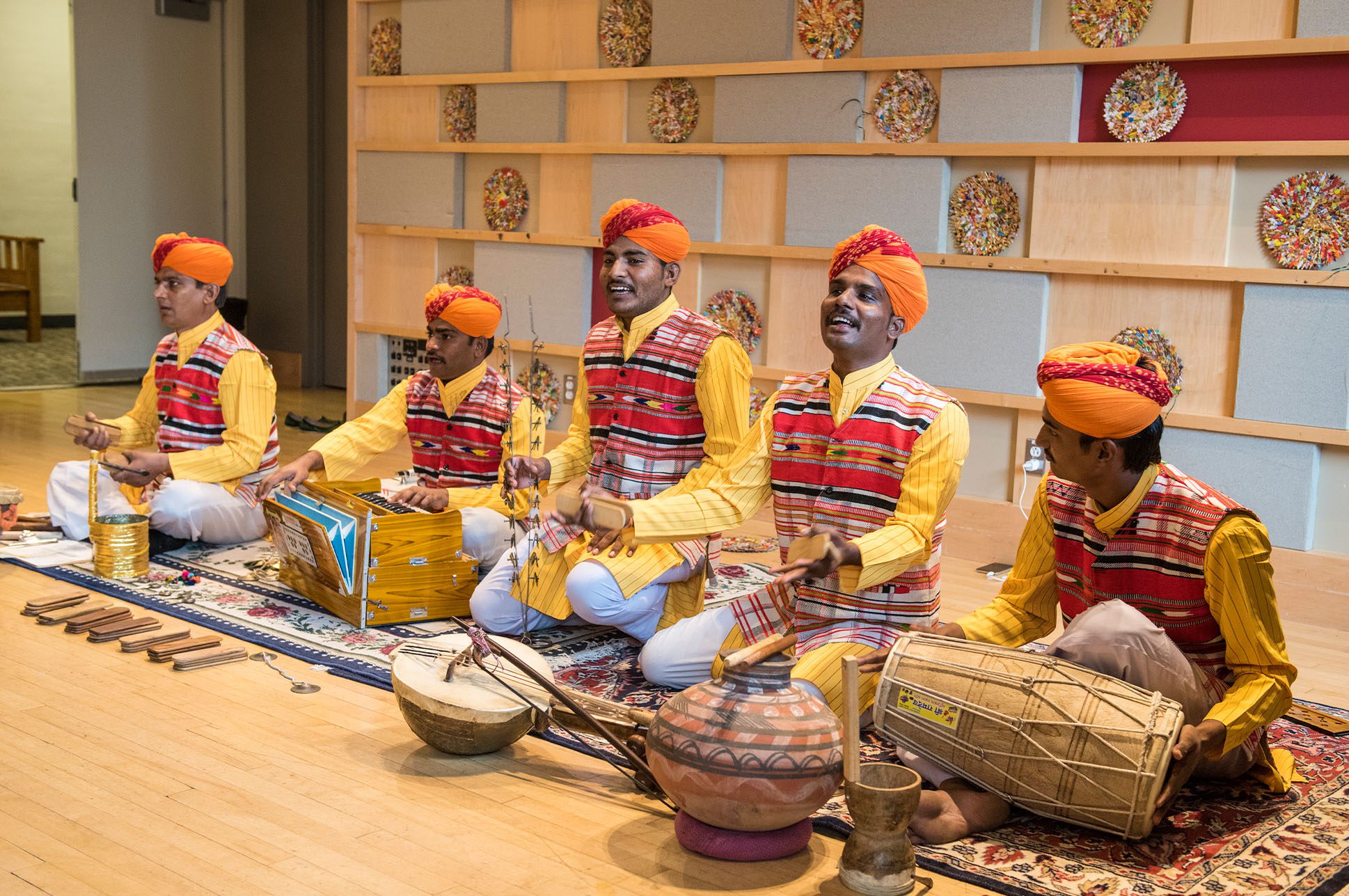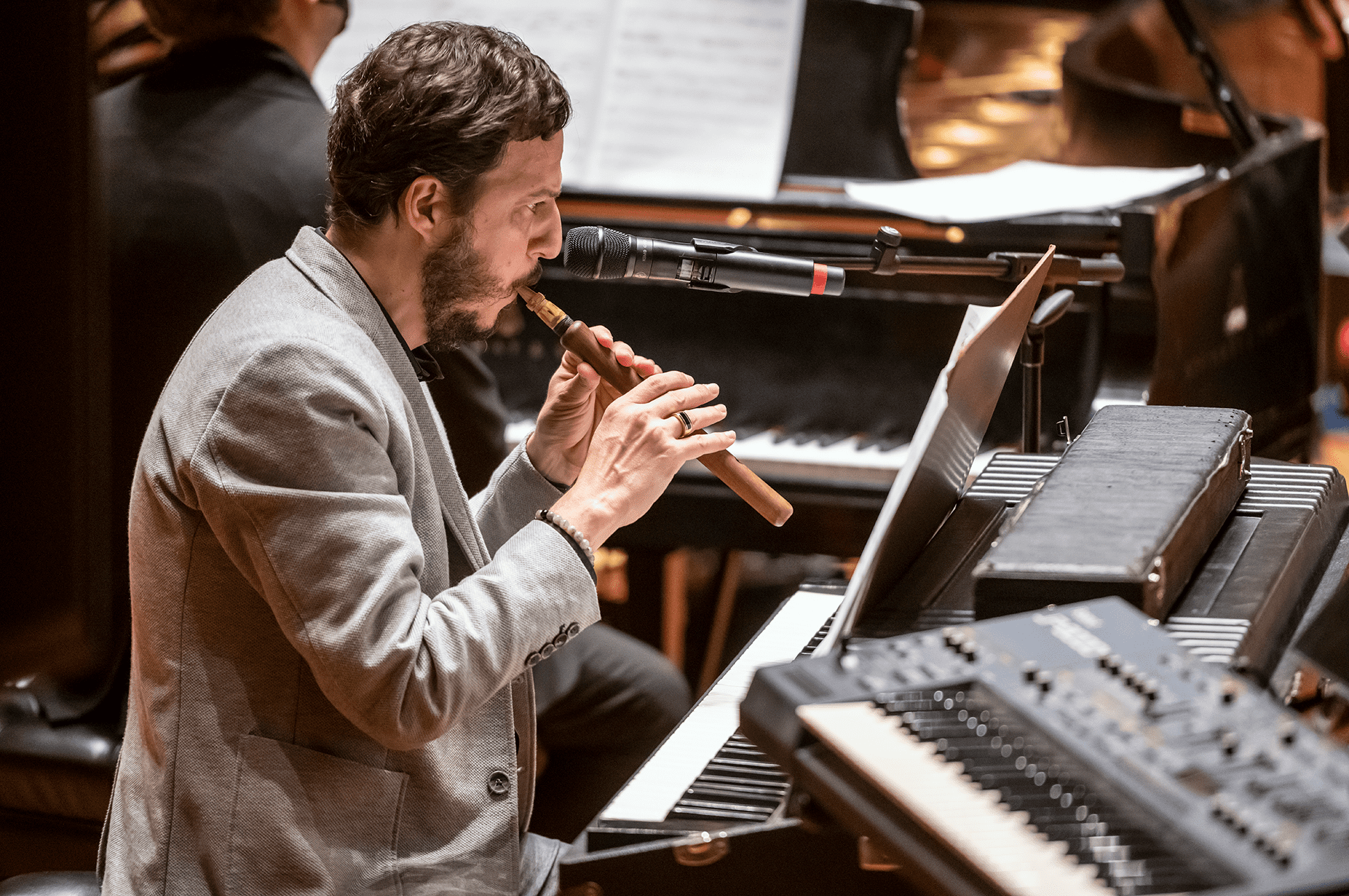Intercultural Institute

The NEC Intercultural Institute (ICI) presents monthly workshops, performances, festivals, conferences, and residencies by guest scholars and artists in musical traditions from every continent.
Cross-cultural guests scholars and artists visit academic classes and ensembles across departments, inspiring curiosity and a deeper understanding and appreciation of music from cultures around the world. All ICI events are free and open to the Conservatory community and general public.


Mehmet Ali Sanlıkol
Meet the Director
Grammy-nominated composer, multi-instrumentalist, ethnomusicologist, and NEC Music History and Musicology faculty member Mehmet Ali Sanlıkol is the Director of NEC’s Intercultural Institute.

Intercultural Institute Competition
The NEC Intercultural Institute Competition is an annual competition recognizing students who have pursued the music of another culture in either composition or scholarship. The competition offers two prizes: $1,000 for a winning essay and $1,000 for a winning composition. Winners have their work presented at the concluding event of the Intercultural Institute series each April.
This year’s submission deadline is March 24.
To be eligible for the ICI Competition:
- Students must attend a Intercultural Institute (ICI) events/workshop to qualify to enter the competition. There will be a sign-in sheet at the ICI events for those who wish to participate in the competition.
- The competition is open to all majors at the undergraduate and undergraduate levels.
Past winners of the competition may not reapply.
Applications must include:
- A completed original composition or essay in response to a non-Western musical tradition music you encountered at one of the ICI events/workshops you attended. Early European repertoires are also represented on the Intercultural Institute schedule, and student work on those repertoires is also eligible.
- Essays can address any historical or musicological issue about the chosen musical tradition. They should be between 2500-3000 words.
- Compositions do not have to incorporate the instruments typically used in your chosen musical tradition. Instrumentation can be entirely composed of contemporary Western instruments. It is up to the composer to decide how to best represent your chosen tradition in your composition.
- Compositions must be between 5-7 minutes. We recommend that composers avoid designing their compositions for large ensembles since, if selected, they will be responsible for assembling an ensemble for their composition to be performed at the end of the year (see below).
- The minimum required instrumentation is a duet—solo pieces will not be accepted.
- While the competition will have two prizes, it is possible for composers and writers to team up and address the same tradition/style. If a single individual chooses to present both a piece of scholarship and a composition based on the same tradition, they are potentially eligible to be selected in both categories and will receive both prizes.
Further questions can be addressed to Dr. Mehmet Ali Sanlıkol at mehmet.sanlikol@necmusic.edu. Submit all applications to Dr. Sanlıkol at the same email address.
There will be a panel composed of several judges, and the selection of winners is based on the following factors:
- In-depth representation of the chosen musical tradition.
- Demonstration of intercultural understanding. Unique musical qualities of the chosen tradition must be reflected in your essay or composition.
- Depth and vitality of work.
The top essay and composition will be read/performed at the final Intercultural Institute event of the year (usually in April). The awarding of the prizes will take place at this event.
- In-depth representation of the chosen musical tradition.
- Demonstration of intercultural understanding. Unique musical qualities of the chosen tradition must be reflected in your essay or composition.
- Depth and vitality of work.
If no strong contender exists in a category, the ICI Competition panel reserves the right not to confer an award.
2024
Composition: Isaac Pagano-Toub ’25 MM, Limping Dance
Essay: Joanna Peters ’27, Music as Resistance: Arirang, Han, and Liberation

